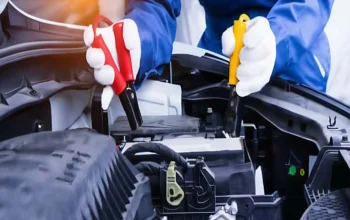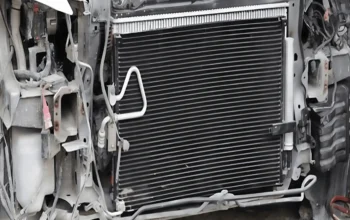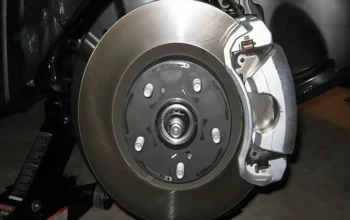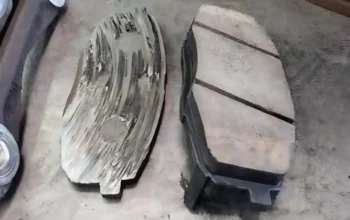Pena Global – Ever been confused about whether you should repair brake rotors or just replace them? You’re not alone. Many drivers hear strange braking noises or feel weird vibrations when stopping, and immediately wonder: Do I need new rotors, or can I just fix them? The good news is, you’re asking the right question. Repairing brake rotors isn’t always the default choice—and knowing when to repair or replace can actually save you money and keep your ride safer.
Let’s break it all down in simple terms so you can make a smart decision the next time your brakes start acting up.
Table of Contents:
- How Do Brake Rotors Actually Work?
- Signs You Might Have Rotor Trouble
- When Is It Okay to Resurface (Repair) Your Rotors?
- When Should You Replace Your Brake Rotors?
- The Hidden Downsides of Resurfacing
- Should You Replace Pads and Rotors Together?
- Real Talk: What Most Mechanics Recommend
- Final Thoughts: What’s Best for Your Car?
How Do Brake Rotors Actually Work?
Brake rotors are the flat, circular metal discs attached to your car’s wheels. When you press the brake pedal, the brake pads clamp down on the rotors to slow the vehicle. It’s that friction that stops your car—but over time, it also causes wear.
So when your rotors get warped, cracked, or uneven, that smooth stop turns into a shaky or noisy ride.
Signs You Might Have Rotor Trouble
Before you decide on fixing brake rotors, it’s important to know the symptoms. If your brakes are trying to tell you something, here’s what to listen (and feel) for:
1. Squealing or Grinding Noises
A high-pitched squeal could mean your brake pads are worn, but a grinding noise? That’s often your rotor saying “Help me!”
2. Brake Pedal Pulsation
If your brake pedal feels like it’s pulsing under your foot, that’s often a sign of warped rotors.
3. Steering Wheel Vibration
Does your steering wheel shake when you hit the brakes? That could be your rotors not wearing evenly.
4. Longer Stopping Distances
If your car takes longer to stop, that’s a red flag that your braking system (including your rotors) isn’t performing at 100%.
5. Visible Rotor Damage
Look at your rotors—if they’re scored, grooved, or even turning blue from heat, they need serious attention.
When Is It Okay to Resurface (Repair) Your Rotors?
Resurfacing—or “turning”—your rotors means shaving off a thin layer of the metal surface to make it smooth again. It’s cheaper than replacing and keeps your original rotors in play… but it’s not always the best option.
You can resurface your rotors if:
1. No Deep Cracks or Severe Damage
Surface scratches or light scoring are okay. Deep grooves or cracks? Not worth the risk.
2. Adequate Thickness Remains
There’s a minimum thickness standard for rotors. If yours are still above that line, resurfacing might be possible.
3. Minimal Warping
If the rotors are only slightly warped and resurfacing brings them back to flat, you’re good to go.
4. Cost Efficiency
In some cases, resurfacing is cheaper than buying new rotors—but factor in labor and whether the shop does quality work.
When Should You Replace Your Brake Rotors?
Sometimes, repairing brake rotors just doesn’t cut it. Here’s when replacement is the safer—and smarter—move:
1. Rotors Are Severely Damaged or Cracked
Once your rotors have deep cracks or major damage, it’s game over. Replacement is your only real choice.
2. Thickness Is Below Minimum
Rotors wear down over time. If they’re too thin, they won’t be safe to use—even after resurfacing.
3. Resurfacing Doesn’t Solve the Problem
If you’ve already resurfaced and your car still vibrates or grinds, new rotors are your best bet.
4. You Want Better Long-Term Value
New rotors often come with warranties and give you more life than repeatedly fixing old ones.
The Hidden Downsides of Resurfacing
Resurfacing might sound like a quick fix—and it is—but there are a few things to watch out for:
- Performance Impact: If not done right, resurfacing can cause uneven braking or even make things worse.
- Heat Management: Thinner rotors don’t dissipate heat as well, which could lead to warped rotors again.
- Shorter Lifespan: Once resurfaced, your rotors are more vulnerable to future issues.
In short, resurfacing works, but only if done by someone who knows what they’re doing—and if your rotors are still in good enough shape.
Should You Replace Pads and Rotors Together?
Short answer? Yes.
If your rotors are going out, chances are your brake pads are too. Replacing them together ensures they wear evenly, perform better, and last longer. Plus, mismatched components can cause noise, vibration, and faster wear.
Real Talk: What Most Mechanics Recommend
In most modern repair shops, mechanics lean toward rotor replacement instead of resurfacing. Why?
- It’s quicker.
- It’s more reliable.
- It often costs about the same as resurfacing, when you factor in labor.
- New rotors usually come with manufacturer warranties.
Unless you’re on a tight budget and your rotors are in great shape, replacement just makes more sense these days.
Final Thoughts: What’s Best for Your Car?
If your rotors are slightly worn, not warped, and have enough thickness left? Sure, repairing brake rotors is worth considering. But if you’re hearing rotor grinding, seeing grooves, or feeling vibrations—it’s time for a replacement.
In the end, your safety is more important than squeezing out a few extra miles on worn-down rotors.
What do you think? Got brake issues? Don’t wait until it gets worse—get them checked out and decide if it’s time to resurface or replace. Your car (and your future self) will thank you.






